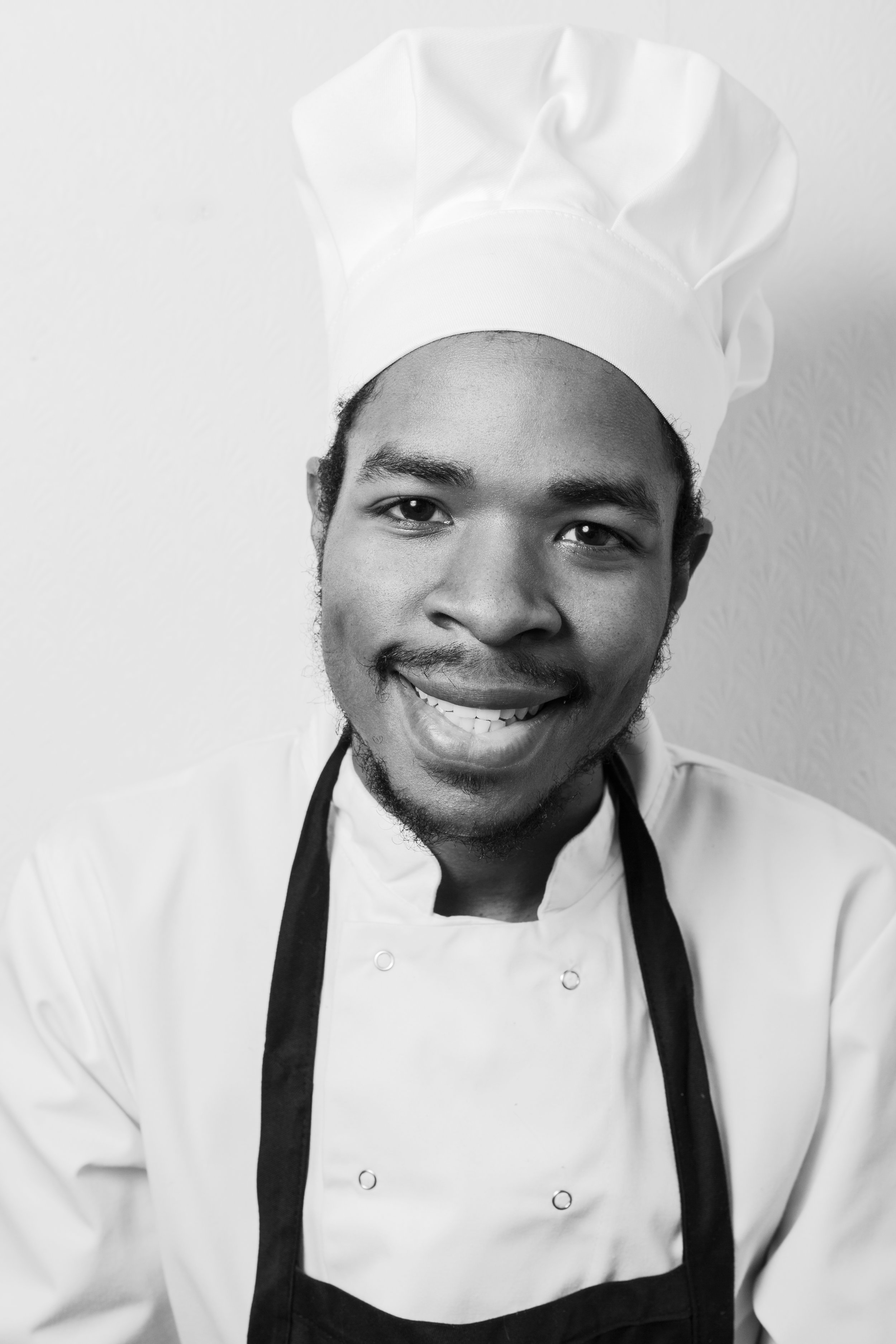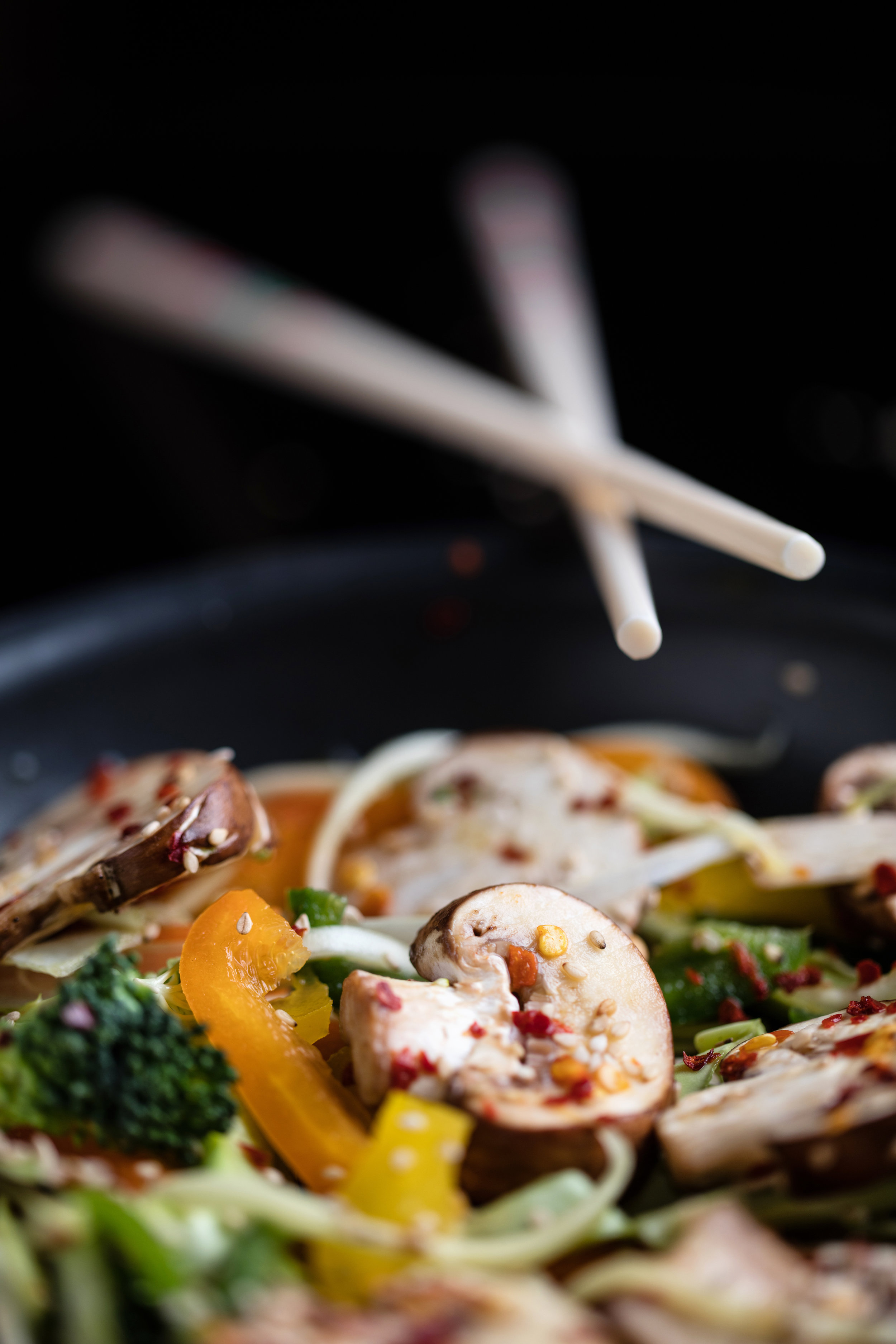Shane Jordan is more than just modern-day Britain's most innovative chef by definition: as part of his activism work, he fights food waste by using a melange of leftover edible fruit and vegetable skins in his tasty, imaginative dishes. Surely a pioneer in the field with no absence of creativity nor stamina, Shane Jordan shares his mastery of making waste trendy in his cookery book 'Food Waste Philosophy'. Shane is also renown for sharing his alternative approach to food usage outside the kitchen: for that, he has partnered with numerous UK waste initiatives, such as Fair Food Foragers and FoodCycle, to educate people on minimising and reusing food waste. We recently caught up with the food maverick to explore his take on the most blatantly unresolved dispute in the food industry today.
Words: Hanna-Amanda Pant
Image: Shane Jordan
How did you find your way into the food industry?
I found my way into the food industry by volunteering with FoodCycle. FoodCycle is a UK charity that creates meals from surplus food in order to provide community meals in the local area. By chance, a friend of mine took me to one of their community meals. I was unaware of their ethos, but I enjoyed their meal and began to enquire about their organisation. Once I learned what they did, I decided to volunteer and find out why supermarkets would throw out perfectly good food.
What was the catalyst that made you explore the concept of sustainability in it?
The catalyst, for me, was FoodCycle and watching the transformation of wasted surplus food into delicious three-course meals for the community. What they did was inspire me and lit a spark of ideas and curiosity.
What are some of the challenges and threats the food industry is currently facing, and that you are trying to help overcome?
The challenges in the food industry are around food waste and shelf life. Supermarkets need to take responsibility for what they purchase, and for any leftover stock. Either sell discounted food at the end of the week, forward all leftover stock to charities, or allow staff to take food home with them. The threats, similarly, are wasted stock in supermarkets, food banks becoming reliant on supermarkets and people on a low-wages becoming reliant on food banks. What I am trying to do is build awareness, make learning fun, informative and informal. These are all serious issues, but I wish to bring light to serious issues with less urgency and more light-hearted dialogue and enthusiasm.
Image: Recipe from Food Waste Philosophy
What are the most shocking facts about the food waste industry and food sustainability we should all know about?
The shocking facts are how much perfectly edible food is being thrown away, and the true reasons behind it. Food perfection in its raw state allows consumers, when purchasing items, to discard buying food that looks oddly shaped or blemished and dented in some way. As for food sustainability, perhaps promoting sustainably local food more than importing food from abroad. More imagery of local farmers and local pride might help this. The problem is sometimes it’s cheaper to import food from abroad, and local food can be more expensive.
I am thinking, the facts perhaps not usually revealed to the end consumer; that get covered up through greenwashing and other marketing ploys?
With regards to greenwashing, it’s a very tricky subject. Marketing is free to conjurer-up smart ideas to persuade consumers to purchase their products. There are small exaggerations, such as using the colour green and having flowers and plants in the background, to give an impression of sustaining life etc. Then there are deliberate marketing ploys that aim to purposely trick and deceive their customers. It’s near impossible to tick every box and be 100% ethical, sustainable and fulfil everyone’s desires. But, with the rise of smartphones, companies have to be more transparent and seek to incorporate real sustainable values into their practices.
How can consumers make sure they get access to a quality controlled, local, ethical and authentic food product? What are some of the criteria we should always look for?
Wow! It depends on where you shop. Some supermarkets have better labelling, signage and more of a reputation for having those criteria’s met than others. You could research the supermarket and their products online first before purchasing, or read labels when you are in the supermarket. Also, there are dedicated websites that share information about local, ethical products and give detailed ratings and reviews which are helpful.
"What I am trying to do is build awareness, make learning fun, informative and informal. These are all serious issues, but I wish to bring light to serious issues with less urgency and more light-hearted dialogue and enthusiasm."
Image: Shane Jordan
What are some of the most interesting stories you've heard regarding food waste and food sustainability you'd like to share with us?
The most interesting food waste stories are the reasons why people throw food away in the first place, and discussing food with people from a different generation. I couldn’t pinpoint one particular story, but for example, throwing an entire bag of potatoes away because it was slightly sprouting. The interesting thing about this was this person did not want to throw it away. But they had no idea they could just cut those ends away and keep them in a cool dark space. As long as they are still firm to the touch and they don't look too wrinkly and shrivelled. Once this piece of knowledge is passed on, it reduces the amount of waste.
Regarding stories on sustainability, I have heard many anecdotes of new gardeners who are daunted by the task of growing entire vegetables themselves, and establish a new-found respect for growing their own herbs. This gradually led to growing spring onions and partly-grown tomatoes and bell peppers. This shows how confidence can be achieved through starting small. Also, funnily enough, they became so attached to what they have grown that they did not want to eat it in the end.
Tell us about your book Food Waste Philosophy.
Well, the Food Waste Philosophy is a book that documents my rise into cooking. It explores themes around food waste, sustainability and our relationship with food. Instead of preaching and ideology, the book takes you on a journey and allows you to reflective on information and read real-life situations. Also, it has recipes and many tips on what could enhance your cooking, plus storage advice.
How does your activism work perhaps help to create a better dialogue concerning what is happening in the food industry?
I believe my approach has helped me achieve success. There are many activists who campaign to bring about social change, but their approach can hinder their message. They can come across as too passionate bordering on forceful. I’ve been told my approach is a little more informal and open. I want to be informative, as well as have a conversation. This dialogue will hopefully lead to a positive transfer of information that could lead to real change.
"Instead of preaching and ideology, the book takes you on a journey and allows you to reflective on information and read real-life situations."
Image: Recipe from Food Waste Philosophy
What are the current challenges in your everyday work: why do you think not many other people have not chosen to do what you stand for, e.g. fighting food waste, using vegetable and fruit skins, not using energy...
My challenges are trying to bring my philosophy to the masses. The food industry has been exposed for many years, thanks to social media, for mistreating food, but more can be done practically.
You would be surprised how many people are trying to help with this issue, but more as part of a group or organisation. As for a single individual, there is only a handful. It takes a lot of strength and determination to pursue a big issue, like food waste, by yourself. Even though I have the support of Love Food Hate Waste, Fair Food Foragers and other organisations, I still stand alone in my goal to change things is a positive way. All you need is one person to bring about real change and everything will fall into place. I have no plans to stop the work that I am doing so I hope this year will be a pivotal moment where I reach more people commercially.
Share with us your favourite recipe of the season: what is the most interesting dish we can make in a sustainable way this spring?
I would recommend my Curried Pancakes with Thai Chilli Dip. Spring vegetables for this recipe would be cabbage, carrots, leeks, spring onions and parsnip. It’s a very easy versatile dish and I am sure anyone would enjoy.
"The food industry has been exposed for many years, thanks to social media, for mistreating food, but more can be done practically."
Image: Recipe from Food Waste Philosophy
What is that one thing that keeps amusing you about cooking? What keeps you going in your line of work?
What continues to amuse me is how creative people are online. What they manage to do with food, whether it’s experimenting with ways of cooking or presenting food. What keeps me motivated is the great impact I have on society. Also, I am frequently inspired by past chefs. In particular, Marguerite Patten who was an English home economist and food writer. She was even employed by the Ministry of Food during the Second World War to advise Britons on how to make the most of their rations. When I look at the great work people have done, in regards to food, it inspires me to make a mark in the world, and continue my work and find like-minded people to collaborate with.
Tell us about your new projects. What is your next book about, and which concepts are you trying to bring people's awareness on?
After the success of the Food Waste Philosophy, I have decided to work on a book focusing purely on raw food, with additional tips about food waste too, but focusing on the health and nutrition more.
https://foodwastephilosophy.com
Instagram @shane.jordan_foodwaste
Twitter @FoodwasteShane




